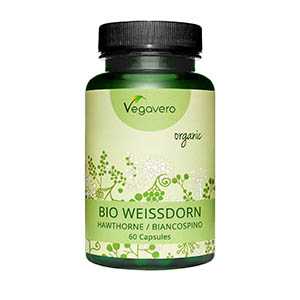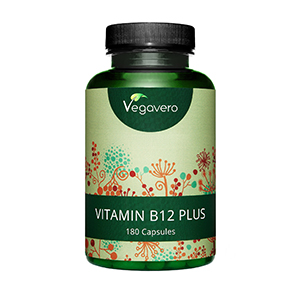
As we get older, many natural changes occur in the body. Bones begin to weaken, we lose muscle mass, hormone levels drop, and we have greater difficulty absorbing certain nutrients, among many other things. Advances in health care, though, have helped people live for longer than ever before. "According to the WHO (World Health Organization), the proportion of people over 60 in the world's population will almost double by 2050 [1]. “As a result, medical conditions have become a more pronounced part of older peoples’ lives. However, most age-associated health conditions in people over 50 can be prevented or treated to some extent by making simple lifestyle changes. That’s why it’s important to understand the challenges that people face as they age. We have compiled a list of specific things that people approaching their 50s or over 50 should pay careful attention to.
1. Lower the pressure
High blood pressure is a serious medical condition. "Approximately 1.13 billion people worldwide suffer from hypertension [2]", and the prevalence is expected to increase over the next few years. Chronically elevated blood pressure damages the interior of the arterial walls, thickening and hardening them, thus limiting the amount of blood that reaches the heart and consequently, the oxygen it carries. This disease is often referred to as the “Silent Killer”, because without leaving any visible traces or symptoms, it will quietly and gradually be causing damage to the cardiovascular system. Therefore, it is important to frequently test one’s blood pressure, as the disease ultimately increases the risk of heart and kidney disease among others.
Salt is one of the most prominent risk factors for hypertension. High levels of sodium from salt can cause the body to retain fluid, resulting in higher blood pressure. Apart from sodium, diet in general can greatly influence blood pressure levels. While a diet rich in whole grains, vegetables and fruits is linked to reduced blood pressure, a diet low in potassium and rich in processed foods and saturated fats was shown to raise the pressure in the arteries. In addition, other lifestyle factors such as smoking, lack of exercise, alcohol consumption, and stress can also have a great influence on blood pressure. Obese people with hypertension will also benefit from losing a few pounds, as it has been shown to be very effective in lowering blood pressure.
2. A little (cholesterol) goes a long way
As for cholesterol, it is a "fatty" substance produced by the body that is essential for health. However, - as with many things in life - a little goes a long way and high levels of LDL (the “bad”) cholesterol in the blood stream can cause serious health problems, as everyone knows. These include atherosclerosis, the buildup of plaque in the arteries, which increases the risk of heart attack and stroke.
Elevated levels of blood cholesterol are mostly caused by diets that are rich in cholesterol and saturated fats, while low in fibre and unsaturated fats. So, the recommendations for keeping cholesterol in check are basically the same as for reducing the risk for hypertension.
3. Treasure those bones
Our bones gradually become weaker with age. The body’s ability to absorb calcium goes down, and as a result, bone mineralization decreases, so the risk of fractures increases. Osteoporosis is closely linked to this degenerative process, as this disease is characterized by the loss of bone mass and bone density.
Similar to hypertension, this disease can go unnoticed for many years until the first pains arise or fractures appear. Thus, it's important to take precautionary measures from early on. It is recommended to provide an adequate supply of calcium, vitamin D and K2, as well as staying active to strengthen the muscles around the bones. We’ve discussed more tips on bone health and how to prevent osteoporosis on the following blog post https://shop.vegavero.com/10-tips-for-healthy-bones.
4. Bend and Break
Just like our bones, our joints become weaker with age. In fact, arthritis is one of the most common health conditions affecting over 49.7% of all adults over 65 [3]. There are over 100 different types of arthritis, the two most common being osteoarthritis and rheumatoid arthritis.
Rheumatoid arthritis is an inflammatory autoimmune disease [4]. The symptoms of rheumatoid arthritis include painful, swollen joints, decreased ability to move the joints, as well stiffness, especially in the morning. Osteoarthritis, on the other hand, is a chronic degenerative disease, which usually occurs due to the normal use and wear and tear of the joints over time. When the cartilage begins to degrade, the bones begin to rub against each other during movement causing symptoms like pain, stiffness and loss of flexibility in the joints [5].
Even though osteoarthritis is a degenerative disease that often comes with age, there are still ways to protect the joints and delay or even prevent the onset of these problems. Watching one’s posture as well as regular physical activity and stretching are definitely helpful. It’s also crucial to maintain a healthy body weight, as every extra pound puts more pressure on the joints, especially the knees. Diet is also very important for joint health. Some studies suggest that a high intake of meat can increase the risk of suffering from joint degeneration [6], while consuming ginger and turmeric can help reduce joint inflammation [7,8].
5. Crossword puzzles for healthy brains
As we age, some parts of the brain naturally shrink, especially those related to learning. However, one of older people’s biggest fears is running the risk of suffering from Alzheimer's or some type of other neurodegenerative disease. Although these are not always part of the aging process, the risk of suffering from such diseases increases with age. Even though the scientific data is still limited, there are a few studies that have found that certain lifestyle changes can help prevent the deterioration of the brain.
Staying mentally active is key in keeping the mind healthy. Learning something new, exercising one’s memory and doing puzzles are an excellent way to keep the brain fit. Apart from mental exercise, physical exercise is also crucial, as moving the body increases blood flow to the brain. Furthermore, exercise has been associated with a decrease in Alzheimer's-related neurofibrillary plaques in the brain, as well as cognitive improvement [9].
As previously mentioned, a healthy diet is crucial to avoid arterial blockage which is associated with accelerated and increased risk of Alzheimer's disease [10]. Additionally, the antioxidants found in fruits and vegetables, including carotenoids and flavonoids, were shown to have protective effects with regards to cognitive degeneration [11,12]. Foods rich in B-vitamins should not be neglected either as folate, vitamin B12 and vitamin B6 play a crucial role in brain health and control homocysteine levels in the body, an amino acid that was linked with elevated risk of neurodegenerative diseases [13].
Finally, getting enough sleep is critical to mental health and to promote brain neuroplasticity. During sleep, not only are memory and learning consolidated, but also toxins that have accumulated in the brain are eliminated. These toxins have been associated with an increased likelihood of Alzheimer's disease [18]. In this blog post we discuss further health benefits of sleep https://shop.vegavero.com/why-sleep-is-important
5. No chance for pathogens
With age, the body’s defense system begins to weaken, characterized by a reduced production of certain immune cells which leaves the body more susceptible to different pathogens. This change may partly explain why pneumonia, influenza and other infectious diseases are more common among older people.
Certain nutrients, like vitamins and minerals are known to be crucial for keeping the immune system running. In addition, as a large part of the immune system sits in the gastrointestinal tract, gut health is key to a good immune function. This is why it is important to resort to foods like fruits and vegetables and, if necessary, supplements that strengthen the immune function.
Last but not least: Stay positive!
We know, reading all this can be overwhelming. But one should consider that many of these diseases are related to each other, and the risk factors are linked, as are the lifestyle changes that can help to prevent them: a diet based on mostly plants and whole grains, regular physical exercise, getting enough sleep, staying hydrated, avoiding drugs such as alcohol and cigarettes, as well as highly processed foods or saturated fats are powerful tools for staying healthy.
In addition, there are some natural dietary supplements that can support the prevention of some of the mentioned health conditions, by reducing blood cholesterol levels, increasing the intake of antioxidants, sleeping better and controlling blood pressure levels. Unlike prescription drugs these natural alternatives have no artificial additives or toxins, so they are an ideal way to take care of your body and help prevent disease without any negative side effects.
Sources
[1] World Health Organization (WHO, 2018): “Ageing and health” (Available on: https://www.who.int/news-room/fact-sheets/detail/ageing-and-health)
[2] World Health Organization (WHO, 2019): “Hypertension”, 2019 (Available on: https://www.who.int/news-room/fact-sheets/detail/hypertension)
[3] Madeline R. Vann, MPH (2016), "The 15 Most Common Health Concerns for Seniors", Everyday Health (Available on: https://www.everydayhealth.com/news/most-common-health-concerns-seniors/)
[4] Kimberly Holland (2016), "Arthrosis vs. Arthritis: What’s the Difference", Healthline. (Available on: https://www.healthline.com/health/arthrosis-vs-arthritis)
[5] National Institutes of Health (2017), "Painful Joints? Early Treatment for Rheumatoid Arthritis Is Key" (Available on: https://newsinhealth.nih.gov/2017/04/painful-joints)
[6] Hailu et al., Associations between meat consumption and the prevalence of degenerative arthritis and soft tissue disorders in the adventist health study, California U.S.A. J Nutr Health Aging. (2006)
[7] Altman and Marcussen, Effects of a ginger extract on knee pain in patients with osteoarthritis. Arthritis & Rheumatism. (2001)
[8] Haghighi et al., Comparing the effects of ginger (Zingiber officinale) extract and ibuprofen on patients with osteoarthritis. Arch Iran Med. (2005)
[9] National Institute on Aging, "Preventing Alzheimer's Disease: What Do We Know". (Available on: https://www.nia.nih.gov/health/preventing-alzheimers-disease-what-do-we-know)
[10] Hughes et al., Midlife fruit and vegetable consumption and risk of dementia in later life in Swedish twins. Am J Geriatr Psychiatry. (2010)
[11] Michael Greger M.D. FACLM (2018), "Brain-Healthy Foods to Fight Aging", (Available on: https://nutritionfacts.org/video/brain-healthy-foods-to-fight-aging/)
[12] Devore et al., Dietary intakes of berries and flavonoids in relation to cognitive decline. Ann Neurol. (2012)
[13] Obeid and Herrmann (2006), Mechanisms of homocysteine neurotoxicity in neurodegenerative diseases with special reference to dementia, FEBS Lett. (2006)
[14] Jon Hamilton (2019), "How Deep Sleep May Help The Brain Clear Alzheimer's Toxins", NPR. (Available on: https://www.npr.org/sections/health-shots/2019/10/31/775068218/how-deep-sleep-may-help-the-brain-clear-alzheimers-toxins)
Recommended Products

Organic Hawthorn
Extract in proportions 4:1, standardized to 1.5% of Flavonoids, obtained through organic agriculture, additive-free, 100% natural and vegan. Helps to control Cholesterol and prevent Cardiovascular diseases.

Vitamin B12 Plus
Our B12 Plus Capsules contain vitamins B6, B9, B12 and Choline. These support each other in various metabolic processes by strengthening each vitamin’s respective effects. B12 helps to reduce tiredness & fatigue. Natural capsules with no artificial additives. 100% vegan


